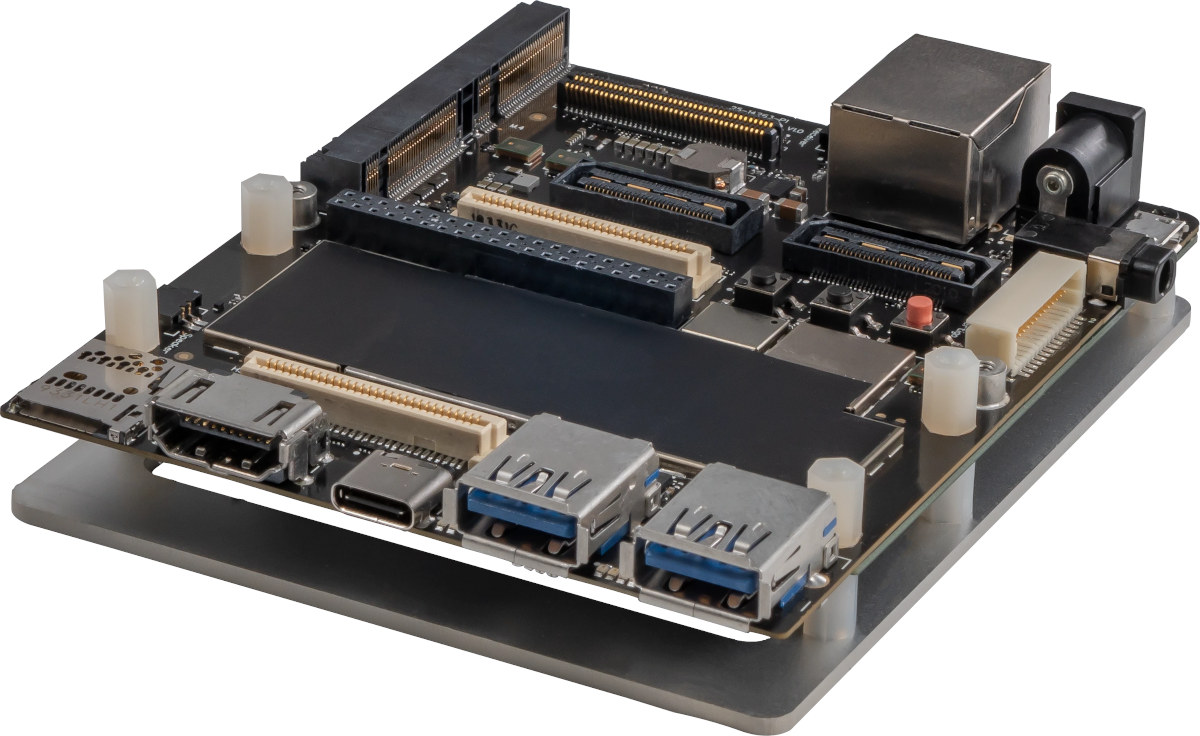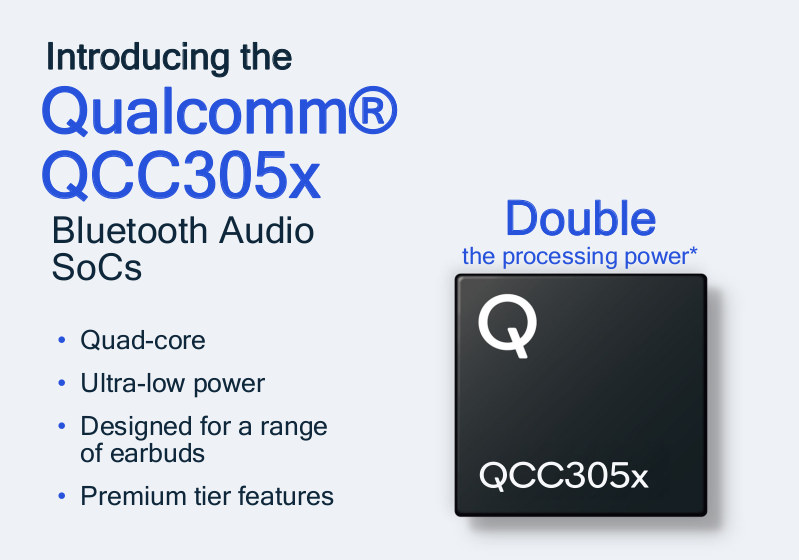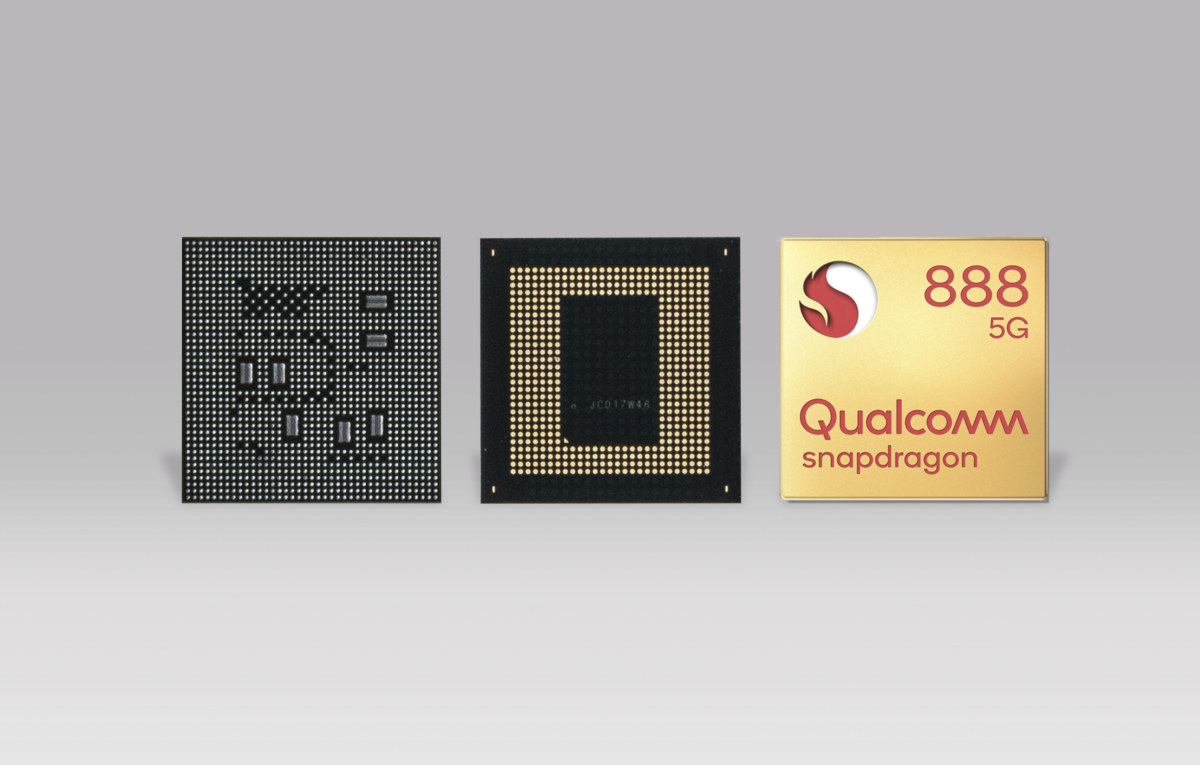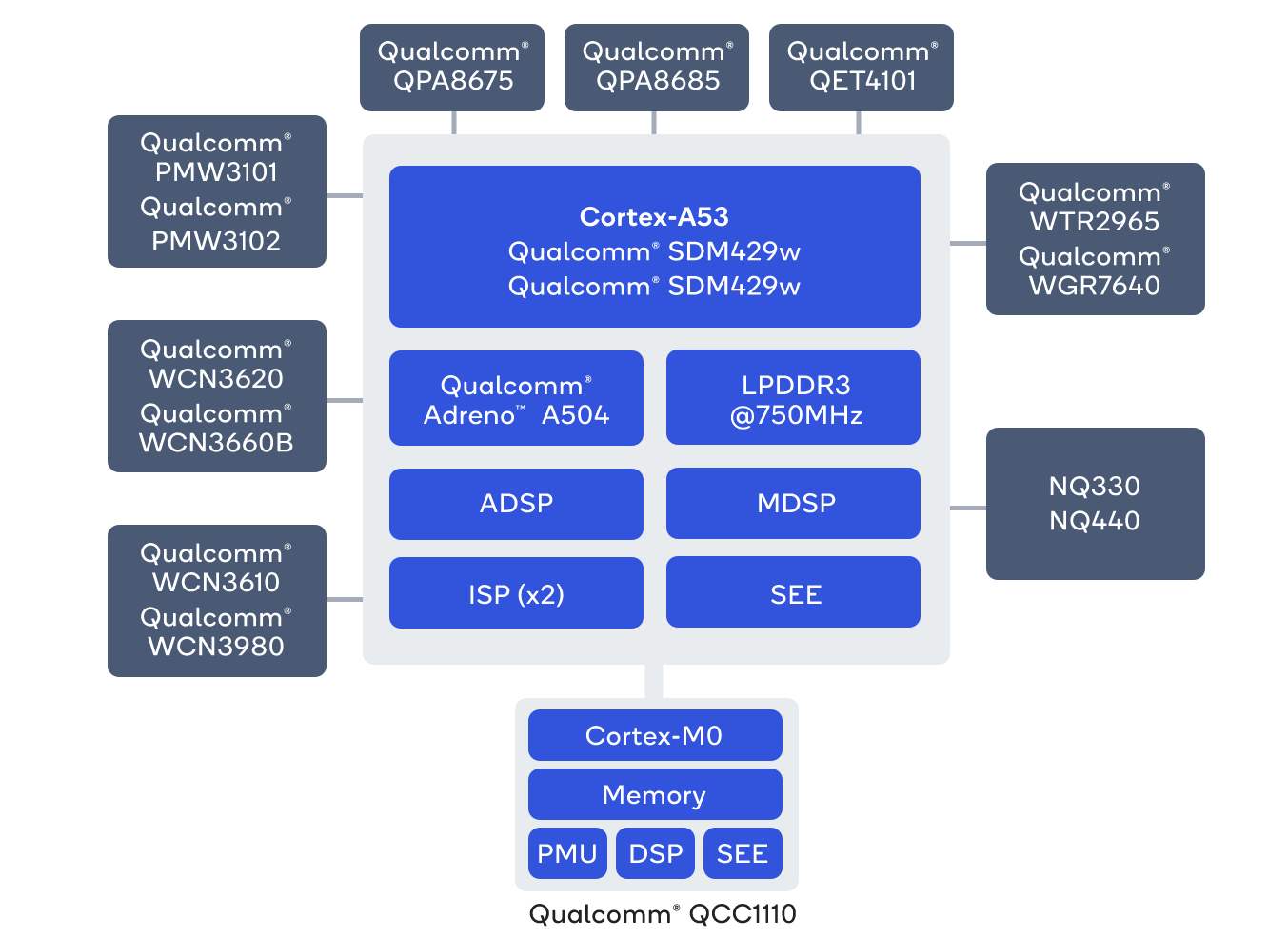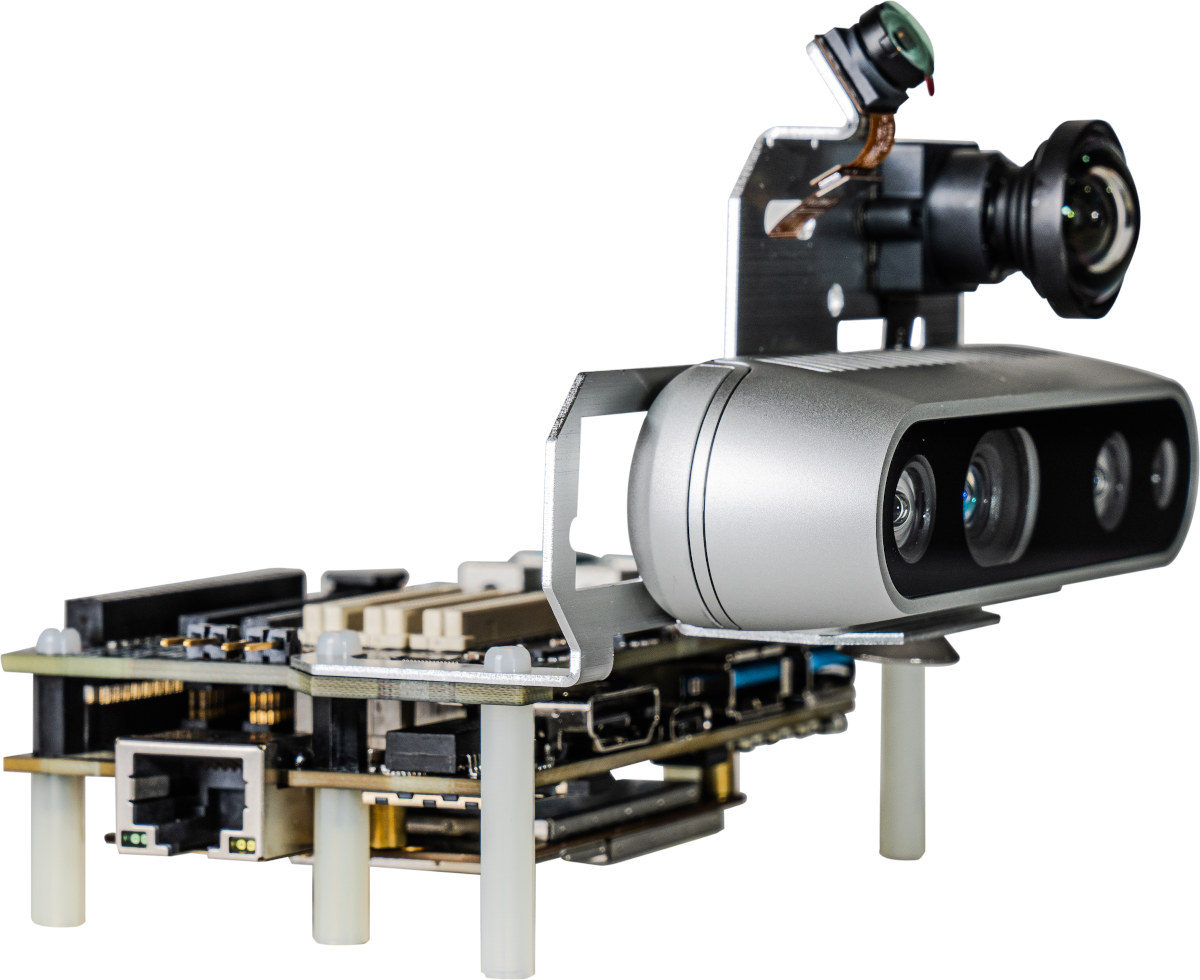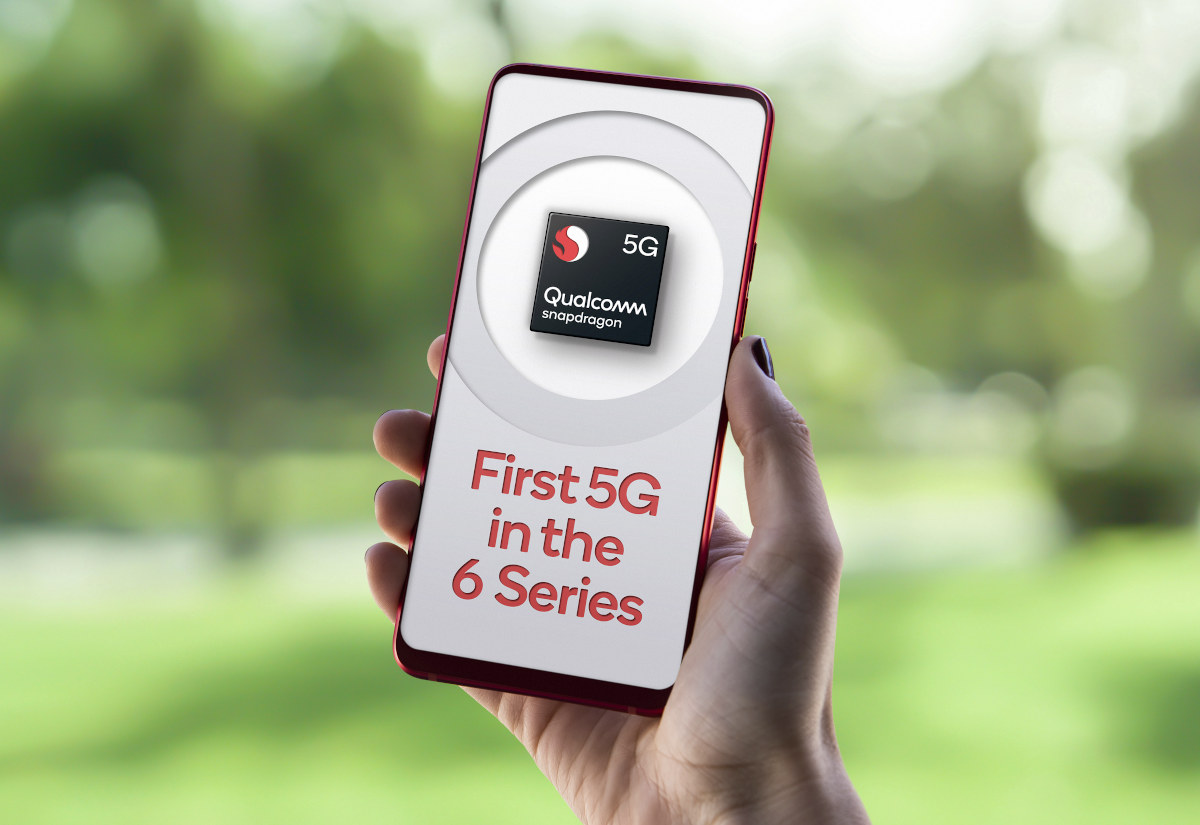Snapdragon 888 is the latest premium mobile SoC from Qualcomm with the octa-core processor combining one Cortex-X1 core, three Cortex-A78 cores, and four low-power Cortex-A55 cores, with Adreno 660 GPU and Snapdragon X60 5G modem. The processor will likely most be found in smartphones, but Qualcomm partnered with Lantronix to launch the Snapdragon 888 Mobile Hardware Development Kit designed for Android app developers, hardware vendors, and original equipment manufacturers (OEMs). Snapdragon 888 development board specifications: SoC – Qualcomm Snapdragon 888 (SM8350) octa-core Qualcomm Kryo 680 CPU with 1x Cortex-X1 core @ 2.84 GHz, 3x Cortex-A78 cores @ 2.42 GHz, and 4x Cortex-A55 cores @ 1.80 GHz, Adreno 660 GPU with support for OpenCL 2.0 FP, OpenGL ES 3.2, Vulkan 1.1, DX12, and up to 8K 360 VR video playback, Hexagon 780 DSP System Memory – 12GB LPDDR5 PoP memory Storage – 256GB UFS 3.0 flash, 1x MicroSD/UFS card Display HDMI […]
5G coming to entry-level devices with Snapdragon 480 5G SoC
5G rollout really only started ramping in 2019, and we covered premium 5G mobile SoC like Qualcomm Snapdragon 855, Huawei Kirin 990 or Samsung Exynos 980, as soon as December 2018. In late 2019 and 2020, 5G came to mid-range mobile devices thanks to chips such as Snapdragon 765(G), MediaTek Dimensity 720, UNISOC T7520, and others. Somehow, 5G still felt premium to me since the technology is still relatively, so I was surprised by the level of coverage in Europe and the US, and even smaller countries like Thailand, when I looked at the 5G coverage map above after seeing an announcement for Snapdragon 480 processor designed for entry-level 5G smartphones. Qualcomm Snapdragon 480 (SM4350) key features and specifications: CPU – Octa-core Kryo 460 processor with two Cortex-A76 class cores @ 2.0 GHz, six Cortex-A55 cores @ 1.8 GHz GPU – Adreno 619 GPU with H.264 (AVC), H.265 (HEVC) VP8 […]
Qualcomm unveils QCC305x/QCC3056 TrueWireless, Bluetooth LE Audio-ready SoC for earbuds
Qualcomm has some SoC families specifically designed for Bluetooth headphones, headsets, & earbuds, and we very recently covered the cute Qualcomm QCC5141 Earbud reference design made to help manufacturers design and launch earbuds with support for TrueWireless Mirroring and Hybrid ANC. The company has now introduced another family with the QCC305x SoC series aiming to “bring premium True Wireless earbud features to a broad range of tiers” such as Qualcomm Adaptive Active Noise Cancellation (ANC) and wake word activated voice assistant, as well as support for the upcoming Bluetooth LE audio standard. The first and only member of QCC305x family at this time is QCC3056 with the following key features and specifications: CPU – 32-bit programmable application core clocked at up to 80 MHz DSP – 2x Qualcomm Kalimba DSP @ 120 MHz with 112kB program RAM, 448kB data RAM Storage – External flash Connectivity Bluetooth 5.2 qualified BR, EDR, […]
Qualcomm Snapdragon 888 specifications – Cortex-X1/A78/A55 Processor with Snapdragon X60 5G Modem
Qualcomm teased us with Snapdragon 888 5G mobile platform on the first day of the Snapdragon Tech Summit 2020 before revealing the specifications and more details about their new premium mobile SoC on the second day of the event. Snapdragon 888 (SM8350) octa-core processor is equipped with one high-performance Cortex-X1 core @ 2.84 GHz, three Cortex-A78 cores @ 2.42 GHz, and four low-power Cortex-A55 cores clocked at 1.80 GHz, an Adreno 660 GPU, and a third-generation Snapdragon X60 5G modem. Snapdragon 888 specifications: CPU – Octa-core Qualcomm Kryo 680 CPU with 1x Cortex-X1 core @ 2.84 GHz, 3x Cortex-A78 cores @ 2.42 GHz, and 4x Cortex-A55 cores @ 1.80 GHz (via Anandtech) GPU – Adreno 660 GPU with support for OpenCL 2.0 FP, OpenGL ES 3.2, Vulkan 1.1, DX12, and up to 8K 360 VR video playback DSP – Hexagon 780 processor with Vector eXtensions (HVX), Tensor Accelerator Qualcomm Sensing […]
Qualcomm QCC5141 Earbud reference design supports TrueWireless Mirroring and Hybrid ANC
Qualcomm has recently unveiled an earbud reference design based on the company’s QCC5141 low-power premium-tier Bluetooth SoC that supports TrueWireless Mirroring and Hybrid Active Noise Cancellation (ANC). What are TrueWireless Mirroring and Hybrid ANC? Qualcomm TrueWireless Mirroring technology relies on only one earbud to maintain the Bluetooth connection with the smartphone, while the secondary bud mirrors the connected bud. If the connected earbud is removed, the secondary earbud assumes the connection with zero interruption. The technology enables both a better, more stable connection and lower power consumption Hybrid Active Noise Cancellation (ANC) is designed to provide high-quality immersive experiences and enable natural leak-through of noise to allow for awareness of surroundings. Qualcomm ANC is fully integrated into this QCC5141 chip to reduce the complexity, cost, and PCB space of adding ANC to earbuds and hearables. QCC5141 Earburd Reference Design Key features and specifications: WiSoC – Qualcomm QCC5141 single-chip Bluetooth SoC […]
Snapdragon Wear 4100+ Platform Combines Cortex-A53 Cores with Always-On Cortex M0 Core
Qualcomm entered the wearables market in 2016 with the launch of Snapdragon Wear 2100 quad-core Cortex A7 SoC, followed by other models all based on Cortex-A7 cores including the more recent Wear 3100 platform which also added a QCC1110 co-processor to extend battery life. The company has now made the switch to 64-bit Arm with Snapdragon Wear 4100 and Wear 4100+ both featuring a quad-core Arm Cortex A53 processor and companion chips, but the latter adds QCC1100 Arm Cortex-M0 always-on (AON) co-processor to lower power consumption. Snapdragon Wear 4100+ key features and specifications: SoC – Qualcomm SDM429w or SDA429w CPU – Quad-core Cortex-A53 @ up to 1.7 GHz GPU – Adreno A504 GPU up to 320 MHz with OpenGL ES 3.1 API support DSP – Dual Qualcomm Hexagon QDSP6 v56, dedicated MDSP for modem and GPS, and dedicated ADSP for Open Sensor Execution Environment (SEE) and audio Memory & Storage […]
Qualcomm Robotics RB5 Platform Targets the Development of 5G and AI-Enabled Robots
Qualcomm Robotics RB3 Development Platform powered by Snapdragon 845 processor gets an upgrade with Robotics RB5 Platform equipped with Qualcomm QRB5165 Robotics processor designed for industrial-grade temperature operating, and featuring a 15 TOPS Qualcomm AI Engine fo artificial intelligence and machine learning applications such as heterogeneous computing, enhanced computer vision, and multi-camera concurrency. The development platform also supports for 4G and 5G connectivity via a companion module and runs Ubuntu and ROS 2.0 operating systems. Qualcomm Robotics RB5 development kit specifications: SoC – Qualcomm QRB5165 with Kryo 858 CPU @ up to 2.84 GHz, Adreno 650 GPU, Adreno 665 VPU, Adreno 995 DPU, Qualcomm Hexagon DSP with quad HVX, and Qualcomm Spectra 480 ISP System Memory – 16GB LPDDR5 RAM (POP) Storage – 128 GB UFS3.0 storage, MicroSD card slot Video Output – 1x HDMI 1.4 port Audio – 2x WSA8810 Class-D on-board speaker amplifier, built-in PDM MIC, support for […]
Qualcomm Snapdragon 690 5G Processor Brings 5G, Cortex-A77 to Mid-Range Smartphones
Qualcomm launched Snapdragon 855, the company’s first 5G mobile processor, in December 2018, before following up the next year with Snapdragon 865, 765, and 765G 5G mobile platforms still targetted to higher-end and premium smartphones. Qualcomm has now introduced its first 5G mobile SoC part of the mid-range Snapdragon 600-series with Snapdragon 690 5G octa-core processor featuring Cortex-A77 and Cortex-A53 cores, and a Snapdragon X51 5G modem delivering up to 2.5 Gbps download speed. Qualcomm Snapdragon 690 5G (SM6350) specifications: CPU – Octa-core Qualcomm Kryo 560 CPU @ up to 2.0 GHz, specifically 2x Cortex 77 cores @ 2.0 GHz and 6x Cortex-A55 cores @ 1.7 GHz GPU – Qualcomm Adreno 619L GPU with support for OpenCL 2.0 FP, OpenGL ES 3.2, Vulkan 1.1, and DX12 APIs DSP – 2x Qualcomm Hexagon 692 with Qualcomm Hexagon Vector eXtensions (HVX), Hexagon Tensor Accelerator, Qualcomm Hexagon Scalar Accelerator Qualcomm Sensing Hub – Ultra-low-power […]


